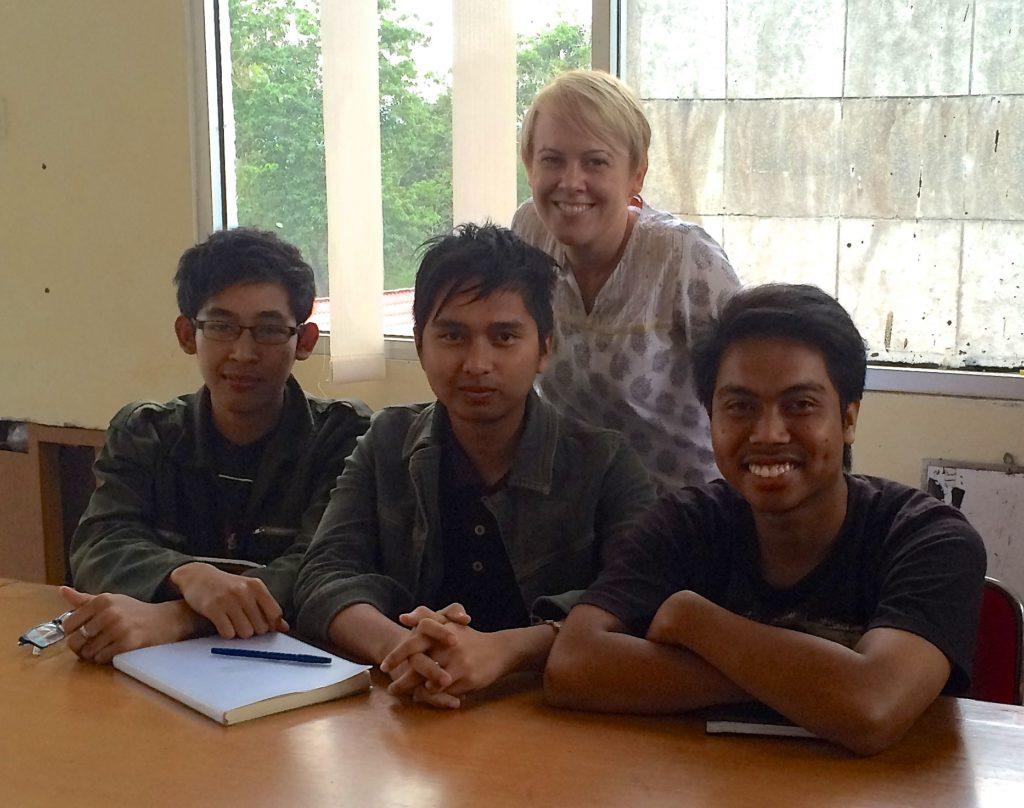By Maxim Tamarov, news editor
Last year, Denise Horn, assistant professor of International Relations, was denied tenure in a highly public and controversial decision made by the office of the provost. With a huge wave of faculty and undergraduate support behind her, Horn’s tenure decision was postponed for reassessment. And this year she was denied again.
Horn is one of three Northeastern professors who have recently been denied tenure for rather ambiguous reasons — despite overwhelming support from their departments and students.
“The question is, ‘What is going on in the provost’s office?,'” Horn said.
Her case was approved all the way up to the provost twice. Shelley Kimelberg, assistant professor of sociology, made it as far as provost as well. She was also turned down for tenure. So was assistant professor of English, Kimberly Brown. The professors were told that they were denied because their work has not appeared in certain top academic journals.
“I think the university provost was looking at the amount of articles they published in major academic review journals. They’re top journals as identified by professionals,” Barry Bluestone, a tenured professor of political science, said. “That’s a very narrow metric on which to judge our faculty.”
Bluestone has been a supporter of Horn and Kimelberg in their quest for tenure. As has former governor Michael Dukakis.
“I have been in public life for over half a century,” Dukakis said. “I was governor of the state for 12 years. Nothing in these so-called top 10 journals had the slightest impact on anything I did as governor of Massachusetts — and I was known as a governor who was interested in policy.”
Dukakis mentioned that ironically, a periodical in The Atlantic Monthly called “Broken Windows” did have a tremendous effect on his decisions.
“I’m all for scholarship,” Dukakis said, “but it better be scholarship that has some impact on the world that we’re supposed to be engaged in as political scientists.”
All three professors are now in the process of appealing the decision. Both Kimelberg and Brown refused to comment, due to the precariousness of their situations.
“This is the second time the provost turned me down,” Horn said. “That is very unusual.”
Last year there was a protest in which Horn’s former students signed a petition to overturn the tenure denial. The protest was led by Horn’s former student Frank Marino, CSSH’13 graduate.
“There was a letter to Aoun hoping that he would see the value of my research,” Horn said.
Horn explained the process to gain tenure, a yearlong process after being on the tenure track. The tenure track is six years, but on the fifth year, the applicant submits a dossier. In the fall, the department meets, votes and writes a letter. The process is repeated at every step of the hierarchy. The next step up is the college committee. Then the dean. Then the provost. And finally the board of trustees. However, the provost can make the executive decision to deny a person tenure. In that case, the board of trustees is not involved.
“From my understanding, Denise was denied tenure largely on the basis of not having enough citations or wasn’t known well enough in the field,” Rachel Rimm, CSSH‘14 and a former student of Horn’s, said in an email interview. “I have to think that this is because her priority was not in making herself famous.”
Cleansing the university of professors who have not published in the most prestigious journals may positively affect Northeastern’s position in rankings like the one conducted annually by US News and World Report. However, according to Bluestone and Dukakis, the university may be losing in the long run.
“If the word got out that this [top publication count] is the metric we’re using,” Bluestone said, “we may lose out on some really good faculty who would choose not to come here because they would like to go to a place where they could do not only good research but also good teaching.”
Horn, who has been lauded by students like Rimm and Marino, has received some of the highest T.R.A.C.E. ratings.
“What I think the provost has done by stressing so much research is that we’ve moved away from the idea that our faculty should be engaged in research, they should be engaged in quality teaching and they should be engaged in community service,” Bluestone said.
His observations echo the faculty handbook on tenure, which selects these three as the pillars on which tenure decision is made.
“By putting all the pressure on research published in top journals, we run the risk of doing two things. We lose faculty who are highly qualified,” Bluestone said. “But I also think you send a signal to students that our focus of our faculty is going to be on research — and that means research, graduate students and postdocs … I fear that kind of pressure over time creates an incentive structure which is a disincentive to good teaching, which I think is a shame.”
Dukakis said he learned a wisdom about tenure from Paul Edward Gray, a former president of the Massachusetts Institute of Technology.
“The best departments, in my opinion, are departments that are balanced,” Dukakis said. “Very few of us are great scholars and great teachers.”
Stephen W. Director, the university provost, could not be reached for comment after repeated attempts.
Photo courtesy Denise Horn









